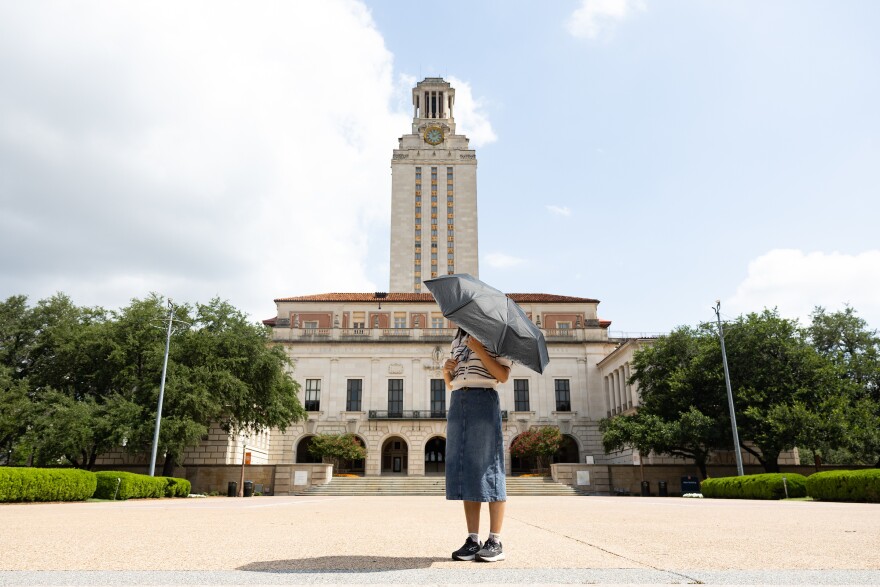Rose's family in China had to work hard for her to study in the U.S. Her dad moved to a rat-infested apartment in another city just so the family could save money for her tuition and expenses.
The Chinese national wanted to study here because "people are free to say what they wanna say," she said, “which is not completely the case now.��
Rose is a PhD student at UT Austin. KUT News has changed her name and withheld details about her major because she fears retaliation.
In April, the Trump administration revoked the legal status of thousands of international students nationwide, including hundreds in Texas and multiple students at UT Austin.
Rose said she was scared and confused, but mainly shocked. The lack of information about why the federal government was revoking certain visas and not others made her feel uneasy.
“I feel like as long as I keep a low profile, do the work that I'm here to do, I guess, I should be OK."Vincent, UT Austin student from India
According to the from the Department of Homeland Security, Texas has the fourth highest number of international students after California, New York and Massachusetts. Of the more than enrolled at UT Austin during the 2024-2025 school year, almost half are from India and China.
Rose is not the only one who feels concerned. Vincent is a first-year PhD student from India, whose name KUT has also changed. While he and his international friends haven’t been directly affected by visa revocations, he said, they are feeling the effects. Most of them decided to stay in the U.S. over the summer.
Both Vincent and Rose said their academic advisers recommended they not leave the country.
“They gave me a very concerned look, and they were like, ‘OK ... it might not be a very good idea to travel at this point,'" said Vincent, who canceled plans to go home to see his family over the summer.
With so much uncertainty, Vincent said, some advisers fear international students might not be allowed back into the U.S. He said if PhD students are stuck in another country or deported, years of research could be impacted.
KUT reached out to UT Austin for comment, but has not heard back.
Vincent said he doesn’t feel good about what’s happening, but he’s trying to stay positive.
“I feel like as long as I keep a low profile, do the work that I'm here to do, I guess, I should be OK,�� he said. For him that means not posting on social media and definitely not attending protests of any kind.
He also said he feels students from other countries, like China, are in more danger than him.
Last week, the federal government said it would from Chinese students. Secretary of State Marco Rubio said the government would also enhance scrutiny for all future visa applications from Chinese and Hong Kong nationals.
Rose said she doesn’t understand it.
“I think most Chinese students who study in the U.S. are like the brightest people that I know,�� she said.
During 2023, Chinese students also contributed more than to the U.S. economy.
“I just don't know how this could do any good to the country, to be honest," Rose said.
The State Department also announced last week it had for foreign students. It said the measure is temporary while the U.S. prepares to expand screening applicants' activity on social media.
The for people looking to study outside their home countries. For international students who are already here, the path is uncertain.
“It happened so quickly, and I don't know who it’s gonna affect and what I'm gonna do,�� said Rose, who still has a few years left to finish her PhD. “It's like in World War II: At first it's the Jewish people, and then it's Germans, and then [the] French and then it's everyone. So, I don't want to be a standby. I see a trend and I'm worried about that trend.��





